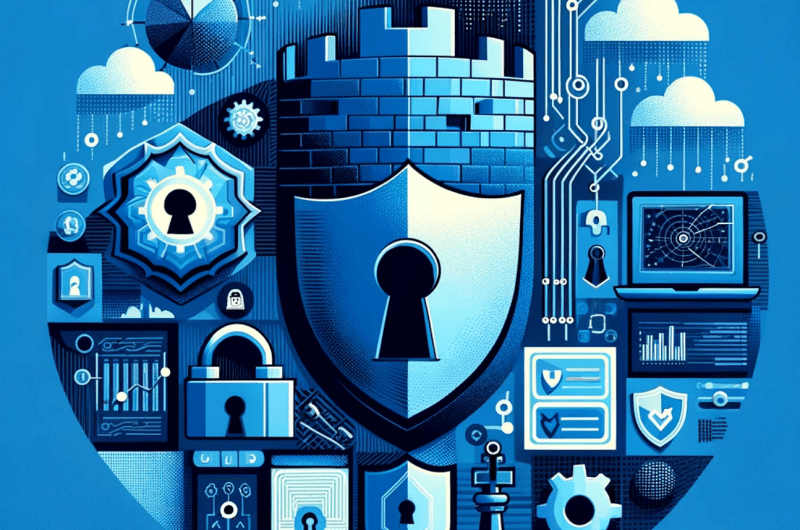Empowering your business in the contemporary digital ecosystem involves more than harnessing the latest technology for growth and innovation; it crucially encompasses navigating the complex maze of data privacy and protection laws. With the advent of rigorous regulations like the General Data Protection Regulation (GDPR) setting benchmarks for data security and privacy, businesses find themselves in a precarious position, attempting to balance the powerful utility of data against the stringent requirements of compliance. This balance is delicately maintained by AI-powered data compliance software, emerging as a pivotal solution designed to streamline the multifaceted challenge of data compliance, thereby safeguarding businesses from the risks of non-compliance, enhancing operational transparency, and fostering a culture of data privacy and protection.
Minimizes the risk of non-compliance
In the heart of the GDPR lies a straightforward yet profound mandate: to safeguard user data against misuse, with non-compliance resulting in significant repercussions, including hefty fines and irreparable brand damage. AI-powered compliance software serves as a vital tool in this context, offering advanced features that significantly reduce the risk of data breaches and non-compliance through automated data mapping, vendor risk, consent management, and real-time updates reflecting regulatory changes.
Data Mapping and Implementation
A fundamental step towards risk management achieving compliance is understanding the whereabouts of personally identifiable information (PII) within an organization. AI-powered compliance software excels in this aspect by automatically identifying and cataloging PII across systems, ensuring comprehensive protection and accountability for sensitive data.
Website Consent Management
Websites often serve as the primary user interface, between businesses and customers, making them critical points for GDPR compliance, especially in terms of user consent. Compliance software seamlessly integrates with websites to manage consents in real-time, aligning online operations with GDPR mandates and bolstering user trust in the brand.
Additional Criteria for the Best GDPR Compliance Software
When exploring GDPR compliance software, it’s imperative to consider several critical factors that distinguish superior compliance solutions, including the capability for ongoing updates, transparency in data protection efforts, user friendly, and cost-effectiveness.
Ongoing updates and regulatory complexity
The regulatory environment is perpetually evolving, necessitating software that can adapt to the data landscape and reflect the latest changes in compliance regulations. This adaptability ensures businesses remain compliant amidst the shifting legal landscape.
Better transparency into your data protection ventures
Transparency and accountability are pivotal in the realm of data protection. The right data management software provides a clear, auditable trail of compliance decisions and actions, offering stakeholders and regulators a transparent view into your data protection ventures. This not only bolsters trust but also streamlines the compliance process.
Cost considerations
The financial aspect of GDPR and compliance programs cannot be overlooked, with non-compliance potentially resulting in substantial fines. Choosing a cost-effective solution by automating compliance tasks reduces the need for extensive manual labor, and minimizes the risk of fines due to non-compliance. This makes it an economically viable option for businesses of all sizes.
Frequently Asked Questions:

Embarking on the path to GDPR compliance can often feel like navigating a complex maze for many businesses. With the General Data Protection Regulation (GDPR) affecting companies worldwide, understanding its requirements is crucial for those handling the data of EU residents. Here, we delve into some of the most common queries businesses encounter along this journey, offering detailed insights to guide you through the compliance process.
What Do You Need For GDPR Compliance?
Achieving GDPR compliance requires a multifaceted approach centered around a robust data protection and consent framework. This framework should include:
- Consent Management: A process to ensure that consent is obtained in a lawful, fair, and transparent manner, allowing individuals to easily manage their consent preferences.
- Data Mapping: An in-depth analysis and documentation of the data flow within your organization, identifying where and how personal data is collected, stored, processed, and shared.
- Data Processing Activities: A clear delineation of all activities involving personal data, including the purpose of processing and the legal basis for it.
Leveraging AI-powered compliance risk assessment software can significantly enhance these processes. Such software not only streamlines the identification and management of personal data but also provides invaluable insights into potential vulnerabilities and compliance gaps.
How do I know if I need to be GDPR compliant?
The GDPR casts a wide net, impacting any organization that processes the personal data of EU residents, regardless of the organization or data subject’s location. This means that if your business handles, processes, or stores data of individuals residing in the EU, you are required to comply with GDPR regulations. The use of modern software solutions designed for GDPR compliance can greatly simplify the process of understanding your obligations and ensuring that your practices are in line with regulatory standards.
How do I make my organization GDPR-compliant?
Transitioning to GDPR compliance involves implementing a comprehensive solution that addresses all facets of data and privacy management and compliance. This typically includes:
- Adopting and Integrating Compliance Software: Tools that automate the management of data privacy tasks, consent recording, and compliance documentation.
- Training Staff: Ensuring that all employees understand GDPR requirements and the importance of data protection.
- Regular Audits: Conducting periodic reviews of data processing activities and compliance measures to identify and rectify potential issues.
Such a strategy ensures not only initial compliance with business requirements, but also the maintenance of these standards over time.
How do GDPR compliance platforms identify data that belongs to EU residents?
GDPR compliance platforms utilize advanced data mapping techniques and AI algorithms to sift through vast amounts of data, efficiently identifying personal data related to EU residents. These automated data discovery platforms can recognize various indicators of EU residency, categorize data accordingly, and ensure that it is managed in compliance with GDPR standards. This capability is critical for businesses that handle data from multiple jurisdictions, providing a streamlined approach to compliance.
Am I required to use European software or store data in European data centers to be GDPR compliant?
No, GDPR compliance does not necessitate the exclusive use of European software or data storage within European data centers. The regulation’s focus is on data access, ensuring that any software or data centers used adhere to GDPR standards, protecting the privacy and security of EU residents’ data. This means that companies can use non-European services, provided they guarantee the same level of data protection as required by GDPR.
What does GDPR compliance software do?
GDPR compliance automation software serves as an all-encompassing solution for managing your GDPR obligations. It automates critical processes that used to be manual tasks, such as data mapping, consent management, compliance reporting, and the documentation of data processing activities. By using such software, businesses can significantly reduce the risk of non-compliance, streamline their data protection practices, and maintain an ongoing compliance posture with minimal manual effort.
Does GDPR apply to software?
Absolutely. Any software that processes or stores personal data of EU residents falls under the purview of GDPR. This includes CRM systems, email marketing tools, analytics platforms, and more. Software providers must ensure their products are designed with data protection in mind, incorporating features that enable users to comply with GDPR requirements, such as data encryption, consent management, and the ability to access and erase personal data upon request.
Understanding and implementing GDPR compliance can be a daunting task for businesses. However compliance experts say, by addressing these common questions with a clear and comprehensive approach, organizations can navigate the compliance process more smoothly, ensuring that they not only meet the legal requirements but also reinforce their commitment to data protection and privacy.
Conclusion: A Strategic Investment in Data Privacy and Protection

AI-powered GDPR compliance software stands as a critical tool for businesses navigating the complexities of data compliance. By offering a suite of features aimed at data mapping, consent management, data governance, and accommodating regulatory changes, such software not only mitigates the risk of non-compliance but also positions businesses for success to stay ahead in the data-driven global market. This technology represents more than just a compliance solution; it embodies a strategic investment in building a culture of data privacy and protection within an organization.
In the evolving landscape of data privacy laws, the ability to swiftly adapt and maintain compliance will be a distinguishing factor for market leaders. As such, investing in comprehensive GDPR compliance and management software, is not merely about fulfilling a regulatory obligation; it’s about enhancing business integrity, fostering customer trust, and securing a competitive advantage in the digital age. Thus, GDPR compliance transcends the avoidance of penalties; it encapsulates the opportunity to refine data management practices, protect customer data, and cultivate a transparent, trust-based relationship with your audience. With the right GDPR compliance software, businesses are investing in their future, ensuring they thrive in an increasingly data-centric world.



